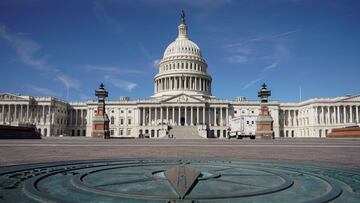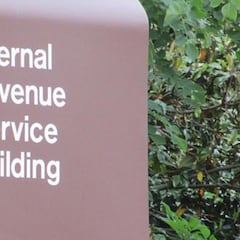Recurring stimulus checks: how would they work and who is pushing for them?
Over 75 congressional Democrats are urging President Biden to include more direct stimulus payments in the Build Back Better plan to be unveiled Wednesday.

Even though the IRS has not finished sending all the estimated 160 million direct stimulus payments, there are calls for a new round of stimulus checks, this time recurring. In a letter sent to President Joe Biden on Tuesday, Democratic Senators urged the White House to also extend unemployment benefits automatically.
“This crisis is far from over, and families deserve certainty that they can put food on the table and keep a roof over their heads. Families should not be at the mercy of constantly-shifting legislative timelines and ad hoc solutions,” wrote Senate Democrats.
-
How you can still benefit from the American Rescue Plan
-
IRS anticipates Social Security recipients will receive stimulus checks starting early next week
-
How many stimulus checks have been there until now and when were they paid?
-
Third stimulus check: can I track my payment by mail?
Who supports making the stimulus payments recurring?
There are 56 Democratic members of the House and 21 Senators that are calling on the White House according to Newsweek to include recurring direct payments to struggling Americans for the duration of the covid-19 pandemic induced crisis.
In the Senate, Finance Committee Chair Ron Wyden is leading the push. The letter was penned at the beginning of March but the lawmakers waited until they had secured the support of more Senators before sending it to the White House. The Budget Committee Chair Bernie Sanders and Majority Whip Dick Durbin have also signed on to the proposal along with more moderate Senators Debbie Stabenow, Gary Peters and Jack Reed.
How much will the recurring stimulus checks be?
Neither the senators nor the representatives give a dollar amount for the recurring payments but many legislators have brought up $2,000 in the past. The lawmakers in the letters call for the payments, and automatic extensions to federal unemployment programs, to be attached to economic conditions.
We need to send emergency cash payments of $2,000 to every person in America each month for the duration of this pandemic.
— Bernie Sanders (@BernieSanders) March 21, 2020
The House Representatives sent a letter to the administration in January calling for the next round of stimulus payments to be made recurring. Last week,Representatives Pramila Jayapal and Rashida Tlaib, reintroduced the Automatic BOOST to Communities (ABC) Act in the House. This would see a fourth stimulus payment of $2,000, followed by $1,000 monthly payments.
Will President Biden support the push for recurring stimulus payments?
The stimulus checks have been very popular with the American public and have helped struggling families shore up finances. The Tax Policy Center projects that a fourth stimulus check could lift around 7 million people out of poverty.
New from @TaxPolicyCenter: The #AmericanRescuePlan will cut poverty by 36% in 2021. One more check would cut it in half. https://t.co/QtgrZXjyQ9 pic.twitter.com/IJhwlC0P0a
— Economic Security Project (@EconomicSecProj) March 31, 2021
President Biden has expressed a desire to work with Republicans to pass his next legislative proposal on infrastructure. The Build Back Better plan is expected to dwarf the $1.9 trillion spent on the American Rescue Plan. In order to cover the cost Biden could introduce tax increases on the wealthy as part of the legislation. This will be a flash point with GOP lawmakers in addition to adding another round of stimulus payments, which might not be feasible within the President's own party.
Related stories
With the Senate divided evenly between Democrats and Republicans, the Democrats had to resort to “budgetary reconciliation” in order to pass the American Rescue Plan with a simple majority. The American Rescue Plan passed with a 50-49 vote in the Senate. Due to the lack of passing a 2021 budget resolution in 2020, the Democrats have a second opportunity to use reconciliation but not until October.
This means that they will either have to remove the filibuster, which has been discussed or get at least 10 Republicans to join them to pass their infrastructure bill. Republicans presented their own plan for a third stimulus check, but it was for less and more targeted than the $1,400 checks that Democrats approved in the American Rescue Plan.
- Joseph Biden
- Coronavirus stimulus checks
- USA coronavirus stimulus checks
- Partido Republicano EE UU
- United States Senate
- Covid-19 economic crisis
- Science
- United States Congress
- Coronavirus Covid-19
- Economic crisis
- Partido Demócrata EE UU
- United States
- Pandemic
- Coronavirus
- Recession
- North America
- Parliament
- Economic climate
- Virology
- Outbreak
- Infectious diseases
- Political parties
- Microbiology
- Diseases
- America
- Politics
- Biology
- Health
- Life sciences
- Economy


